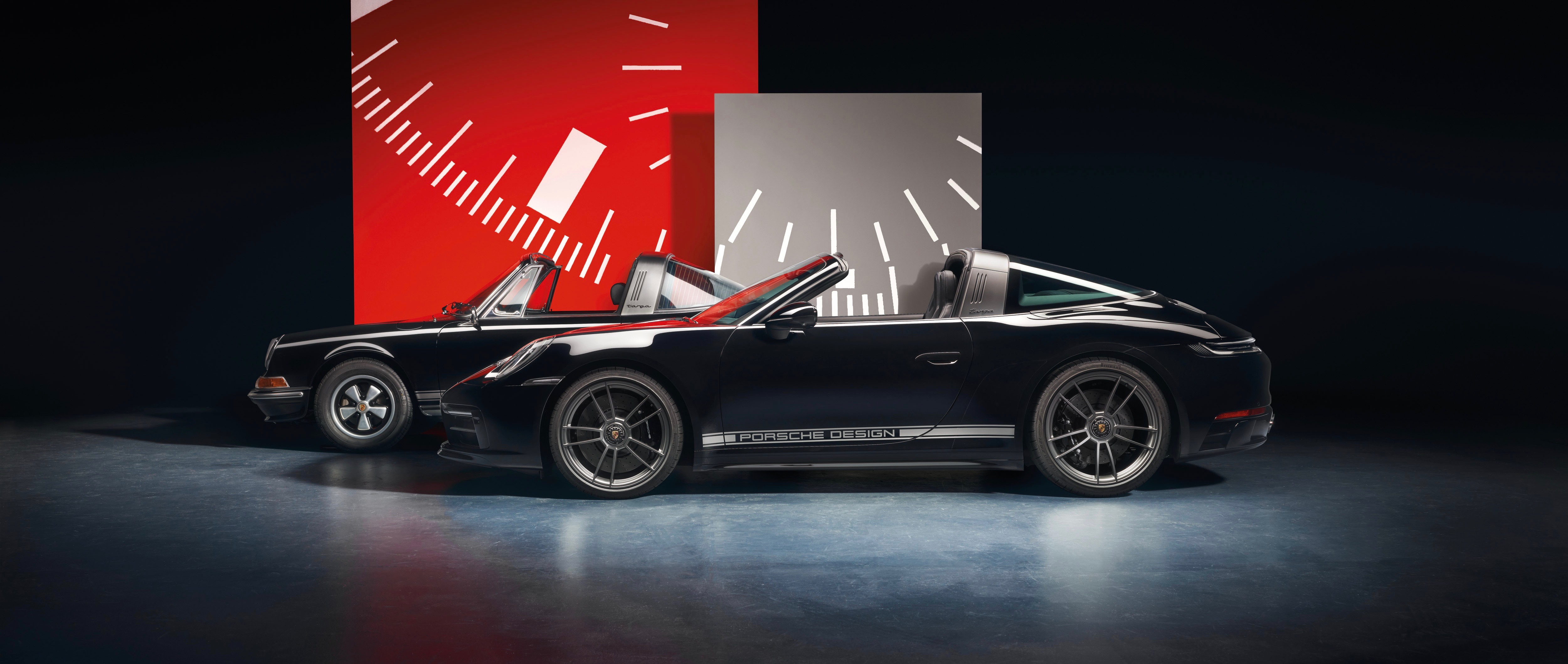Showroom: 911 Targa 4 GTS 50 Years Porsche Design Edition
On the occasion of its 50th anniversary, Porsche Design also celebrates its iconic sports car design – with the exclusive 911 Targa 4 GTS model. The look of the edition is inspired by Ferdinand Alexander Porsche’s signature style.
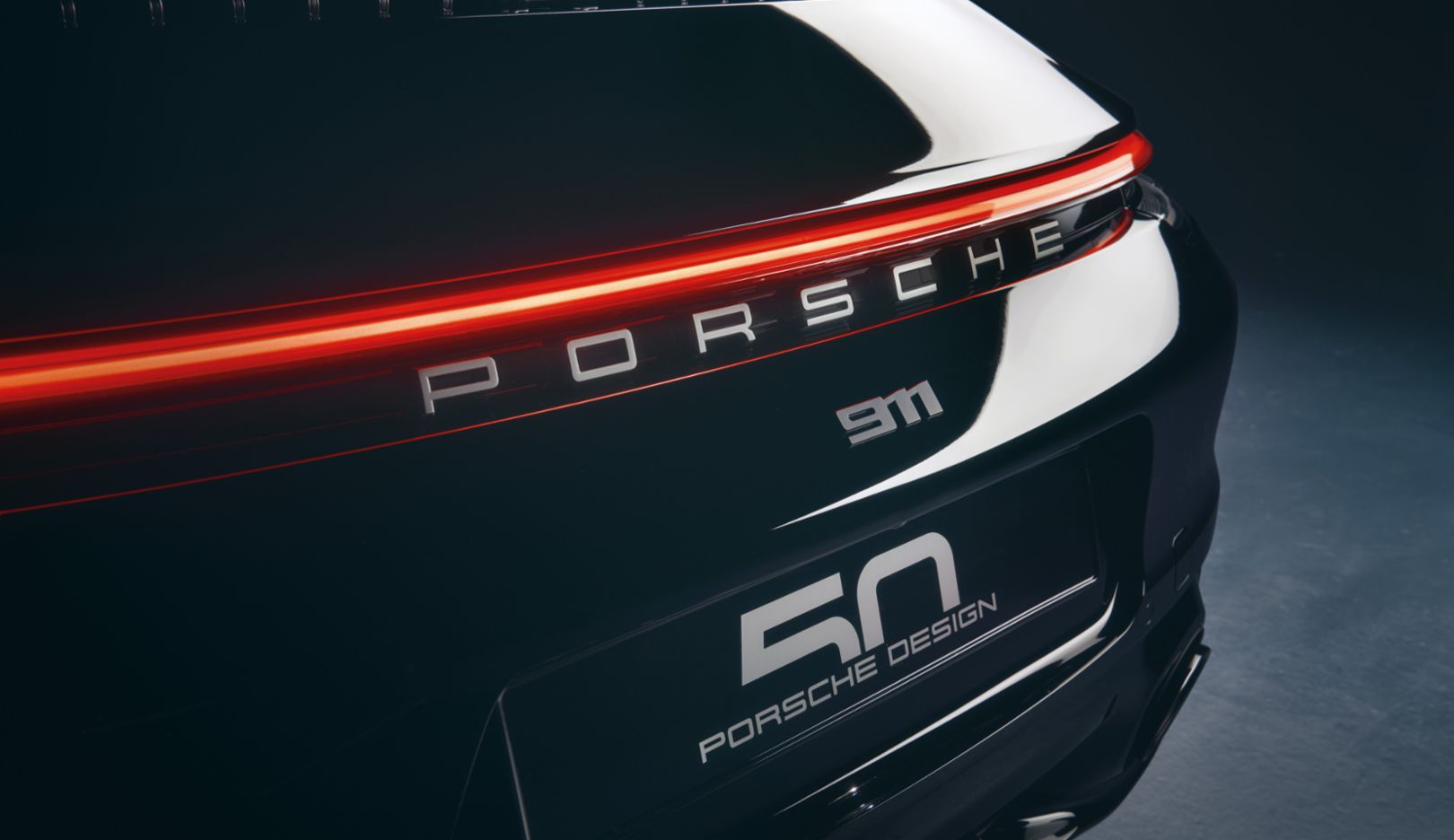
Hommage
Form meets function: On the occasion of its 50th anniversary, Porsche Design also celebrates the iconic sports car design – with the exclusive 911 Targa 4 GTS model. The look of the edition is inspired by Ferdinand Alexander Porsche’s signature style. His message: this 911 boasts performance and personality.
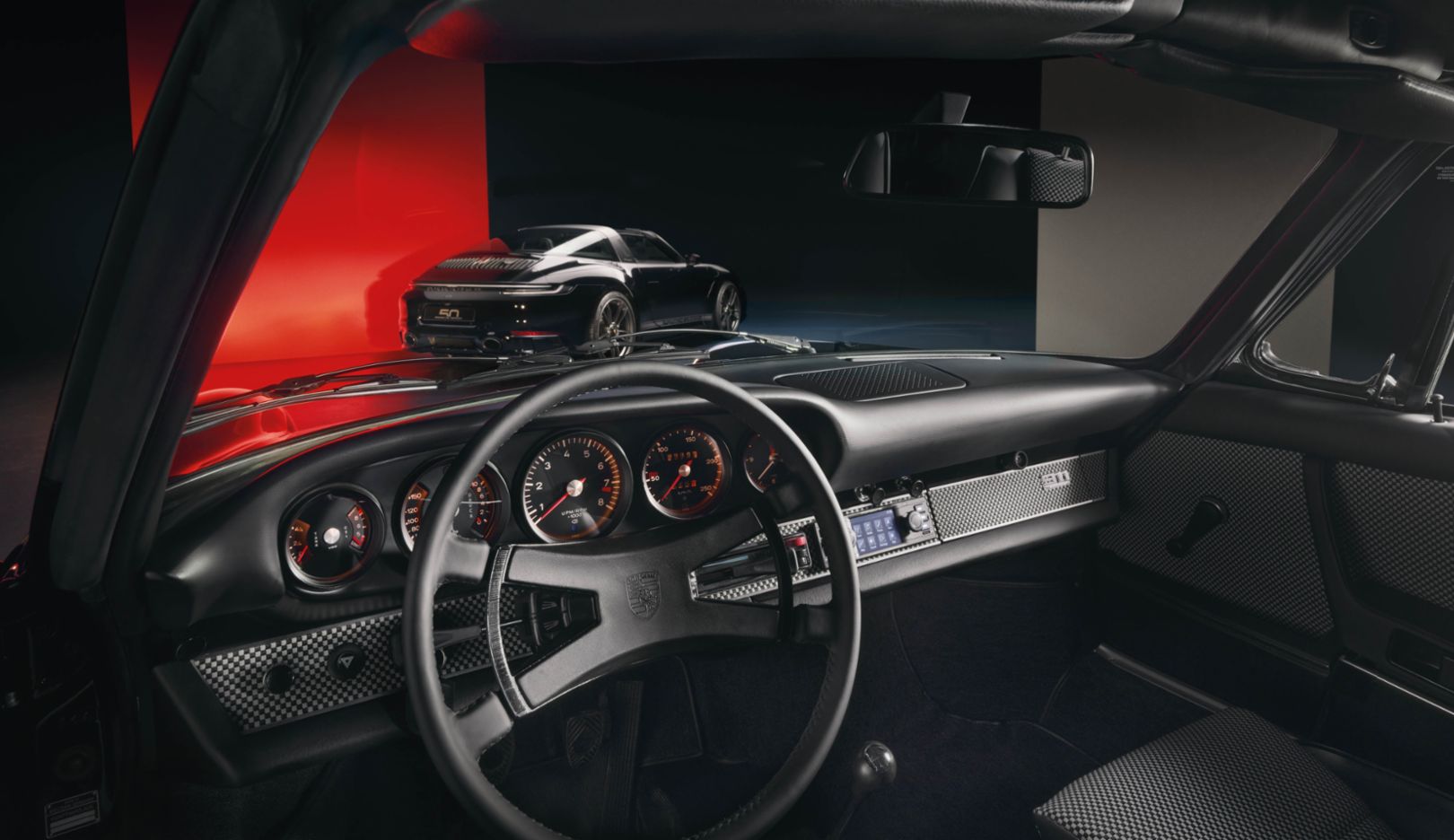
Timeless
Yesterday meets today: Positioned alongside the current 911 special edition, an impressive 911 S 2.4 Targa built in 1972 also makes quite a statement as its legendary predecessor. A unique, highly detailed work of art. Porsche Classic rebuilt the 911 from the ground up, looking to the 2022 anniversary model for inspiration. What the two 911s now have in common is the extraordinary Porsche Design look: elegant, high-gloss black in contrast with decorative elements in slate grey – an exclusive composition and a unique pair of cars.
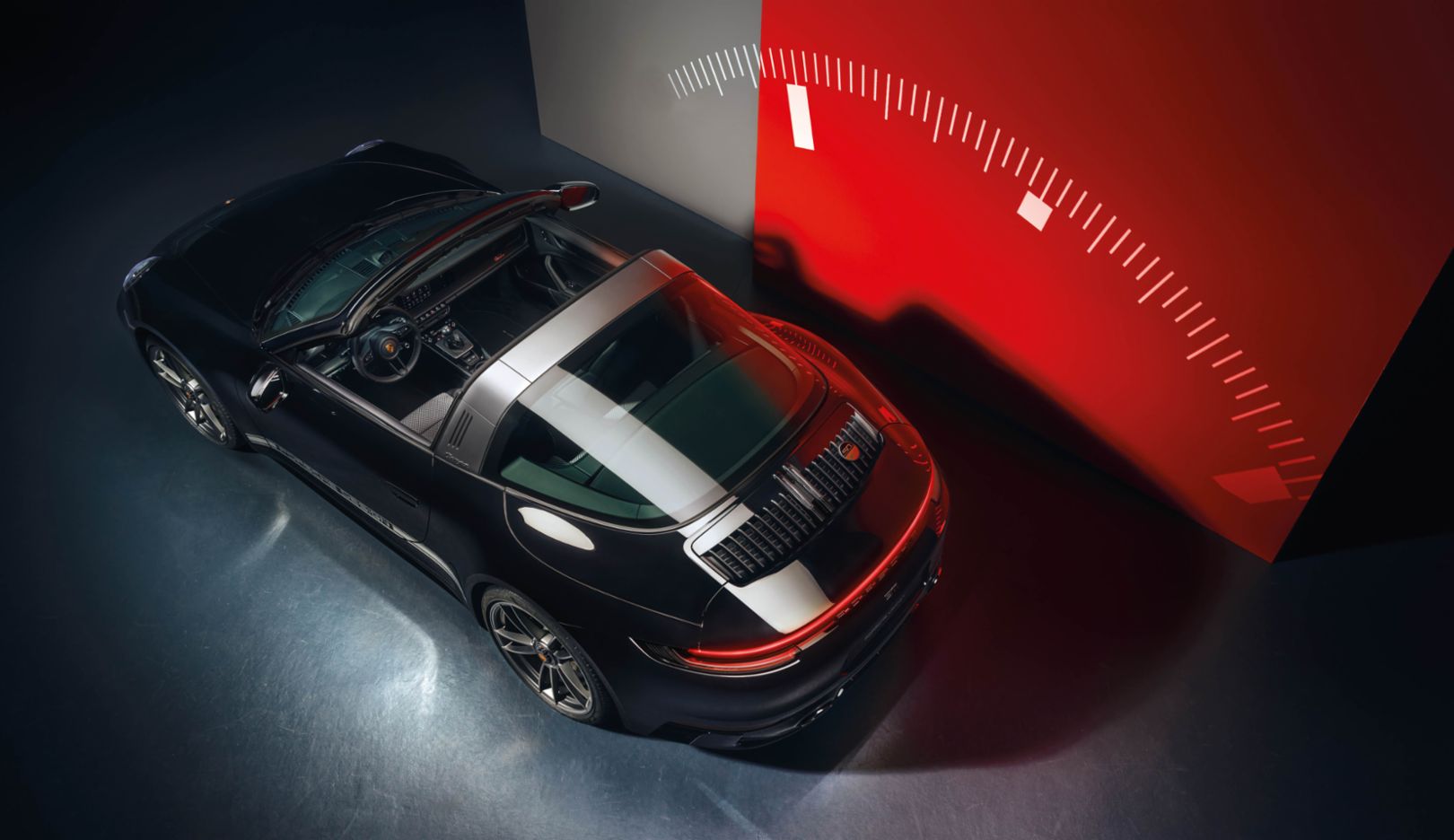
911 Turbo S Wheels
Grip: The 911 Targa 4 GTS is supported by 911 Turbo S wheels, 20-inch at the front and 21-inch at the back. Central lock in black, brake calipers in high-gloss black, and rims with a platinum finish.
Platinum Targa Bar
Elegance: The Targa bar in the accent color of platinum stands out from the black base coat. Flanked by the Porsche Design lettering on the sides, the bar extends the contrasting effects to the exterior.
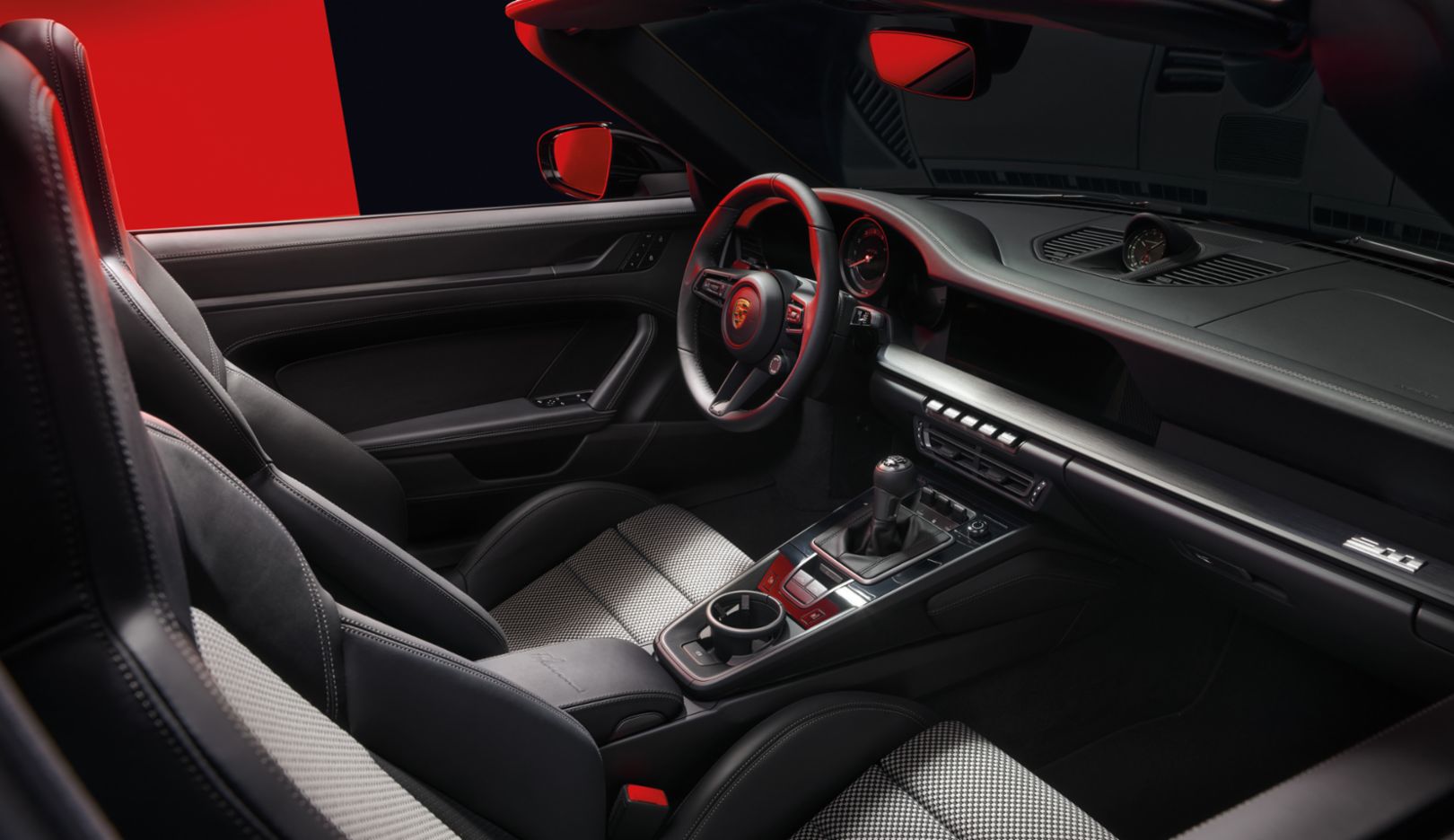
GT Sports Steering Wheel
Movement: The GT sports steering wheel comes with 12 o’clock marking in slate grey. The gear selector comes in aluminum for the PDK and leather for the manual transmission.
Porsche Design Badge
Signature: The model is easy to identify thanks to its exclusive details such as the Porsche Design badge at the air intake grille, which combines the company logo and the facsimile signature of F. A. Porsche.
Inspiration
Stylistic: The check pattern builds a bridge between the two 911 generations and emphasizes the instrument panel, the seats, and the door panels. The Sport Chrono package with the Porsche Design Subsecond clock in the center of the dashboard adds the finishing touch. Another nod to Ferdinand Alexander Porsche and his Chronograph I from 1972, the first Porsche Design product.
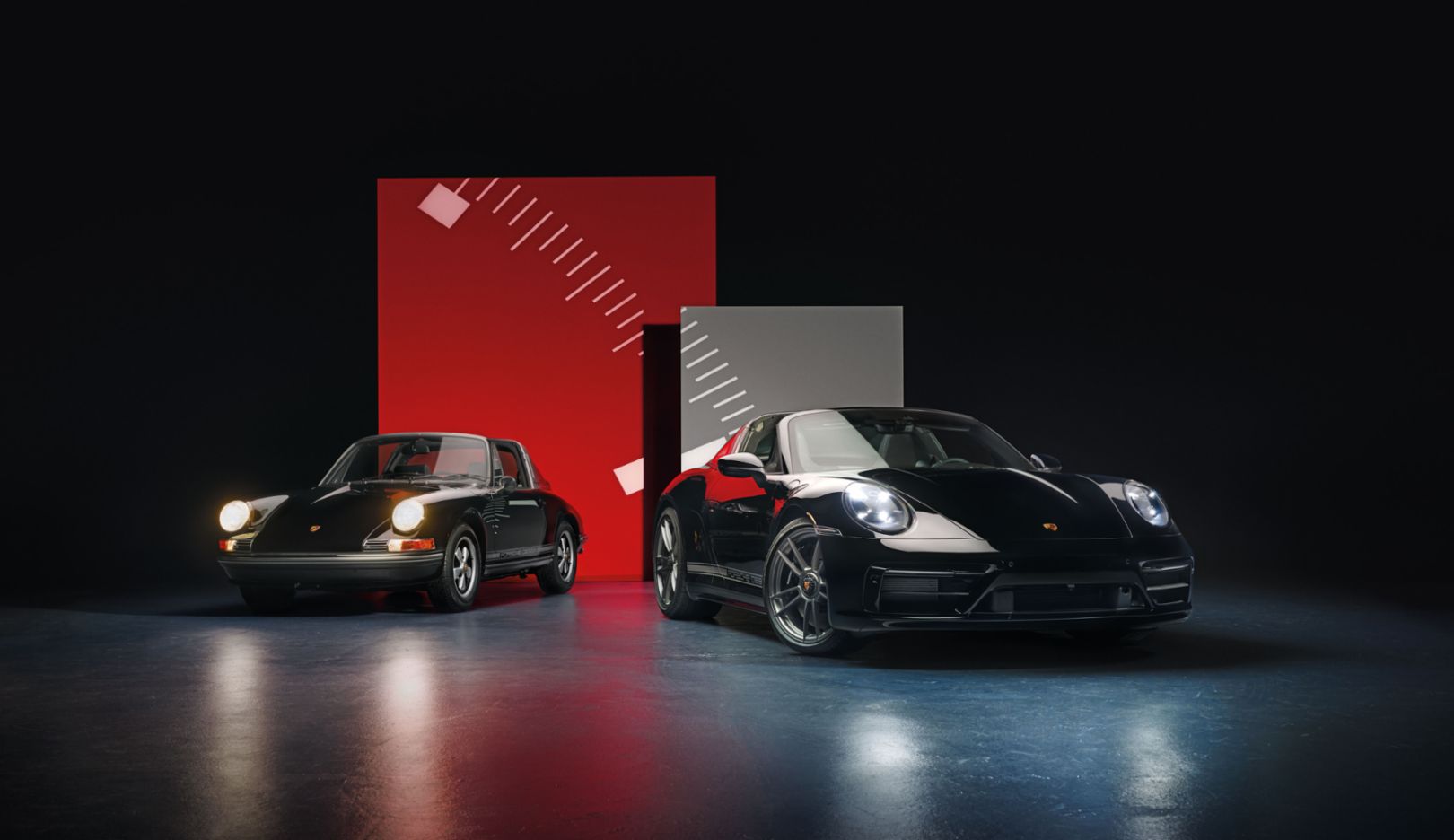
Origin
Sensory: The interior of the unique 911 S 2.4 Targa is a symbiosis of classic proportions and contemporary design elements. Modern material meets historical geometry, which is quite a challenge, as the strength and elasticity of the current material made it difficult to process on the 50-year-old seats. The anodized Fuchsfelge wheels form elegant, contrasting surfaces on the exterior.

Modernity
Special: The interior of the 911 Targa 4 GTS reinterprets Ferdinand Alexander Porsche’s timeless design style. A stylistic balancing act that results in exclusivity. Details such as the limited‑edition badge on the decorative panel are a testament to just how rare the anniversary model is as one of 750 cars.
More info
https://www.porsche.com/international/aboutporsche/porschemuseum/aboutthemuseum/exhibition/
Consumption data
911 GT3
911 Porsche Design 50th Anniversary Edition
-
11.3 – 10.8 l/100 km
-
257 – 245 g/km
-
G Class
911 Targa 4 GTS (2023)
-
11.3 – 10.8 l/100 km
-
257 – 245 g/km
-
G Class
911 Turbo S
-
12.3 – 12.0 l/100 km
-
278 – 271 g/km
-
G Class
Taycan Turbo GT
-
21.2 – 20.5 kWh/100 km
-
0 g/km
-
A Class
